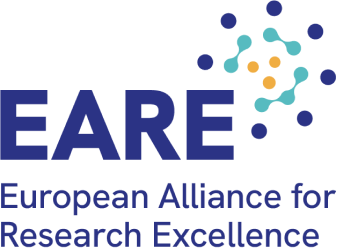The push for simplification opens a window for researchers and innovators to shape the future of AI, data, and research in Europe
In recent months, the new European Commission has sought to simplify legislation with the aim of strengthening European competitiveness, reducing regulatory overlaps, and facilitating the work of SMEs, startups, and innovators. This shift towards simplification is a key goal of the European Commission and has gained momentum in response to geopolitical shifts stemming from the new Trump administration in the US and its deregulatory tendencies.
As part of its simplification agenda, the European Commission is currently reviewing the EU’s digital legislation through a comprehensive fitness check. A Digital Package, expected by the end of 2025, aims to streamline existing rules and address regulatory overlaps. In the area of AI, however, the Commission has already begun taking concrete steps.
How will this push for simplification affect AI and data policies?
Despite the European Commission’s claims of a balanced approach, the AI Act has faced criticism from industry, civil society and academia for its lack of clarity, bureaucratic complexity, and potential to undermine innovation. The US shift towards deregulation and resistance from major AI providers, such as Meta and Google, to signing the Code of Practice (CoP) being developed by the Commission’s AI Office has forced the Commission to loosen some of the Code’s requirements. Even more recently, Executive Vice President Henna Virkkunen demonstrated openness to receiving feedback on AI Act simplification to ensure AI development and innovation in Europe. However, it remains unclear how far the Commission is willing to take simplification and whether the process will impact copyright and transparency requirements.
On Wednesday (9 April), the Commission will present the AI Continent Action Plan. According to a leaked version we accessed, one of the key pillars of the AI Action Plan, which aims to be the roadmap of the EU to become a leading AI continent, should be dedicated to Simplification. The document indicates that the Action Plan seeks to minimize the potential compliance burden of AI Act, particularly for smaller innovators. As part of this initiative, the Commission will launch An AI Act Service Desk which will be provided by a dedicated team in the AI Office and will provide guidance and address inquiries, starting in July 2025. Additionally, a consultation will open this month, in April 2025, as part of Apply AI Strategy, to identify stakeholders’ regulatory challenges and inform possible further measures in support of the AI Act implementation. The consultation results will provide templates, guidance, webinars and trainings. It will also form the basis for further actions to ensure that the AI Act’s rules are clear, easy to apply and deliver on their objectives.
This consultation and the Apply AI Strategy represent a great opportunity for researchers, startups and innovators to inform the European Commission about the challenges they are currently facing and shape the future of AI policies.
Data policy simplification also under the spotlight
Beyond AI, data laws will also be affected by the simplification trend. The European Commission is currently reviewing key data legislation which interferes with AI, including the General Data Protection Regulation (GDPR). The European Commission is also planning to publish a new Data Union Strategy as part of the AI Continent Action Plan. This strategy should streamline existing data rules, potentially creating a simplified, clearer, and more coherent legal framework for businesses and administrations to share data more seamlessly and at scale. The strategy may also explore options to increase the availability of high-quality data and consider possible investments in data infrastructure. It will also examine ways to use data, reduce administrative burdens, and address the external aspects of data flows. The strategy consultation is expected to open in Q2 2025 and represents a new opportunity for researchers, innovators and startups to contribute to future-proofing EU data policy.
EARE, together with its members, calls on the entire research and innovation ecosystem to seize these opportunities to provide feedback on the barriers existing legislation presents to knowledge and innovation. This is a key moment to shape the data, research, and tech landscape in Europe for the foreseeable future.


